[please login to make this ad block disappear]
Independent Review: Pelican Flow 106X SUP
 I tested the Pelican Flow 106X SUP, a board not like many others. For a start, it’s made of thermoform plastic, which is quite normal for Pelican kayaks, but is hardly ever seen in SUPs. And then there is the question which environment the board is made for. Pelican typically makes boats for recreation and touring, but the looks of this board obviously flirt with whitewater. We’ll get to the details below, but let’s just start by saying that this board fills some very specific niches.
I tested the Pelican Flow 106X SUP, a board not like many others. For a start, it’s made of thermoform plastic, which is quite normal for Pelican kayaks, but is hardly ever seen in SUPs. And then there is the question which environment the board is made for. Pelican typically makes boats for recreation and touring, but the looks of this board obviously flirt with whitewater. We’ll get to the details below, but let’s just start by saying that this board fills some very specific niches.
Finishing
No hollow board with holes in it is 100% watertight of course, but considering the board rides so low and has quite a number of drill holes, it doesn't let much water in.
There is quite a bit of drill waste inside the board. That’s nothing important, but for a first-time user, those small pieces of plastic sound as if there is some sort of problem. It won’t last long, as it will wash out through the drain plug easily.
Unfortunately there is no molded in metal bar or hole through the board to securely tie it down with a locking cable (unless you have a Lasso Cable, which wraps around the nose and tail of the board to secure it).
Performance
The Flow is very stable, even when you’re standing on its nose or tail. This has to do with both the rocker and the side-to-side volume distribution: there is some extra volume on the sides of the board.
The Flow is perfect for playing on flatwater and easy whitewater (up to WW-II), which happens to be my idea of fun, so it quickly became my toy of choice on my backyard WW-I river. It is a bit too low volume for running serious whitewater, as the side currents will grab the board easily.
It is a bit short for serious touring (slow), on the hand hand because it is not very long, and on the other hand because it only has one small fin.
Volume
The Flow is pretty low volume, especially in the ends, so it sinks easily - fun for tricks.
Weight
According to Pelican, the board weighs 22 kgs, which is a lot, but when lifting it, I couldn’t believe that number, as it felt a lot lighter. I’m not sure if this has to do with the thin and stiff thermoform material, or if it’s because the board is relatively thin and thus less bulky to carry compared to other boards of the same weight, e.g. the Imagine Surf Rapidfire (click here for our review of that board).
I double checked by putting the board on a scale and it even turned out to be 1 kg overweight: 23 kgs. I also put the Rapidfire on the same scale and it turned out to be 6kg overweight, so that may explain why the Flow seems a lot lighter :)
Either way, the Flow if pretty easy to carry around if you know how to. I typically attach the carrying strap of a travel bag to a side handle of the board and then put the strap over my shoulder, which makes it relatively easy to carry. For longer distances, you will probably still prefer a cart or a car.
Deck
Since the flow rides quite low, the deck catches water easily, especially when edging. The water flows off slowly.
I love the deck pad on the board – with its diamond profile it offers a lot of grip, even during enders.
Fin
Because of the long and shallow form of the single rubbery fin, it is unlikely to catch a rock and if it does, it won’t break. A small disadvantage of the fin form is that it’s not quite as effective as a deep fin, so paddling in a straight line is a bit more difficult. This means that for beginners it can be a bit frustrating to paddle longer distances, but for experienced paddlers this can easily be compensated by the correct paddling technique.
Hatch
The hatch is very handy for storing small things that don’t need to stay completely dry, such as keys, drinks, or in my case the shoulder strap. Some people asked me if the inside pocket of the hatch was waterproof, and the answer is that it’s not. Its main function is to make sure that your keys don’t end up in the tail of the board, which would make it very hard to find them back, also because the board is so flat that you can’t get your arm into the hatch much further than the wrist. I’m honestly still looking for a wallet that fell into the board 3 months ago. There wasn’t anything important in that wallet, and I only tried it by myself so far. This summer, I’ll have someone help me shaking the board to move the item toward the hatch and then I’ll ask some children to search for the treasure, letting them keep any coins they find :)
Because of the Yin-yang shape on the hatch cover it's easier to close the hatch than it is to open it, which means that it can become difficult to open it after closing it firmly. So far I’ve always manage to open it without using any tools though.
Drain plug
The drain plug is simple (it screws directly into the hull), but works, and is relatively watertight. I’ve had it come off twice already when emptying or carrying the board, so I attached an extra piece of string and a small crow foot (made of cable binders) to it and put that inside the board. An alternative is to always completely remove the plug before emptying the board and screw it in again before transporting it.
Side seam
The thermoform board is made of a red deck and a white hull, which obviously have to be joined somehow, which is difficult to do without creating a seam. The seam is a relatively shard edge sticking out on the sides of the board. I accidentally put that seam on my toes once when putting down the board which was quite painful. If you drop the 23kg board on your bare toes, be prepared for discover your yodeling talent. The seam can also hurt when climbing back on the board after a swim. It’s something you’ll get used to and I hardly notice it anymore at all, but I think some soft of trimming for this seam would be a good idea.
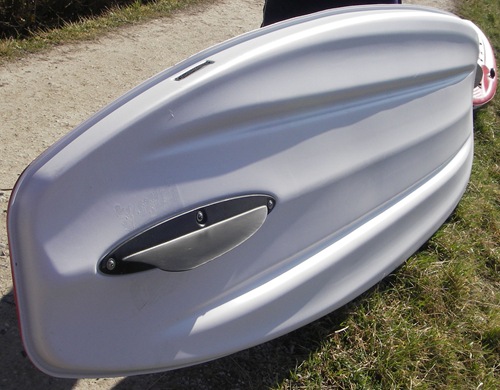
Pelican Flow Hull (brand new board)
Hull
The hull of the Flow has a couple of channels in it, which should help a bit with tracking, but it also gives the board some extra volume on the sides, which makes the board very stable, especially considering it is not all that wide.
Durability
I’ve had the Flow out for 50-100 sessions on the shallow and rocky local river. I hit quite a number of rocks, but apart from some scratches (and dents in the side seam), there is no serious wear or damage.
Conclusion
The Flow SUP is a really nice toy. It's not quite clear though how this model fits in with the further model range of Pelican and Elie. It's too slow and turns too easily for serious touring. The large rocker means that the board rides low, i.e. it's not very suited for real whitewater. The rocker would make it perfect for riding large waves, but the shape of the hull is not ideal for surfing.
Don’t get me wrong – this is a great board and there are some environments in which it works just great, but those are not quite what one would expect from Pelican. So where does this board excel? I would say it is perfect for:
- Schools.
- Rentals.
- Small lakes or easy whitewater.
- Easy surf.
- Pool training.
- Flatwater playing.
- Me :)
Personally I love this board because it is very stable, and yet it is easy to put on end – a fun and affordable toy.
Comment by Pelican: “We designed this board as a recreational board to use on the local lake or rivers. It is a beginner board at a price that is intended to appeal to the masses.”
For Playak,
Jeroen
PS Some ideas for small improvements:
- A little bit less rocker.
- A bit more volume, especially in and around the center.
- 3 fins, 1 or more of which would be removable.
- Trimming of the sharp seam.
Login to post here



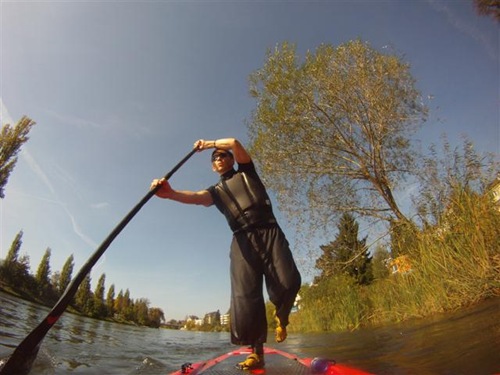
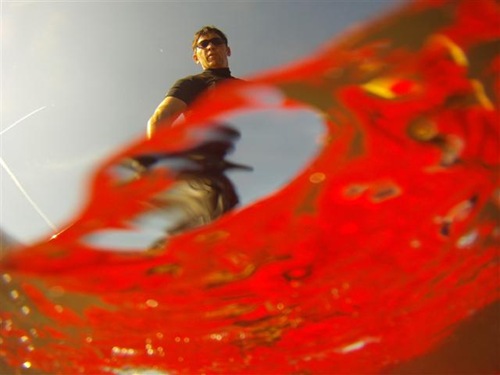
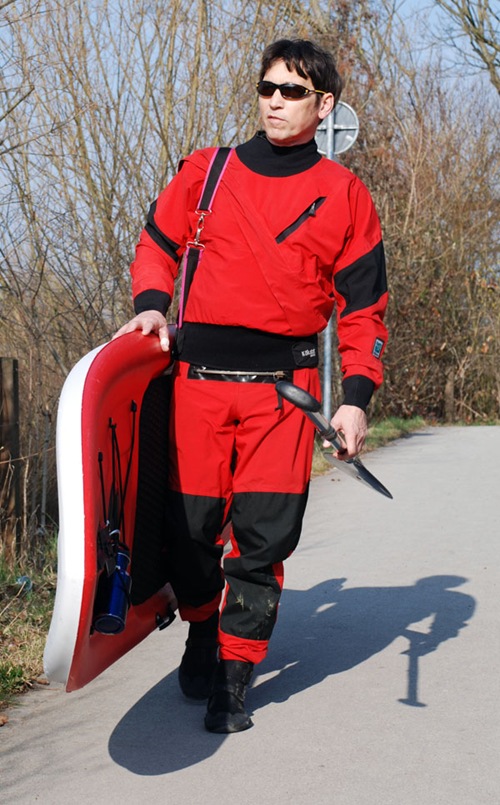
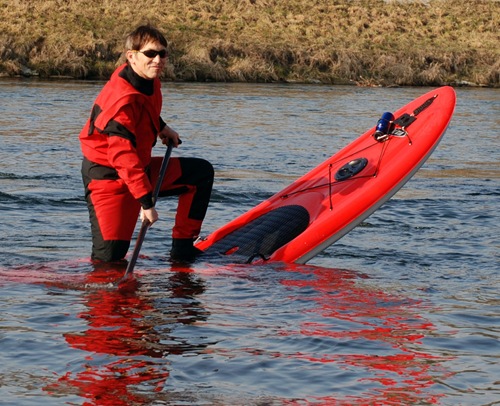
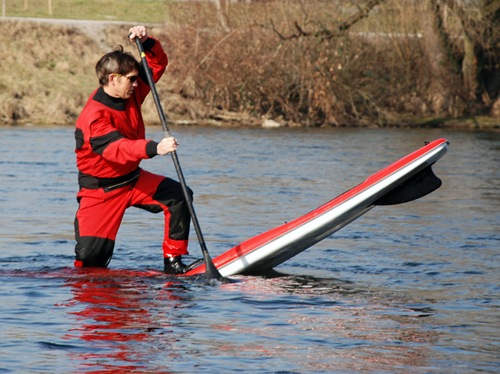
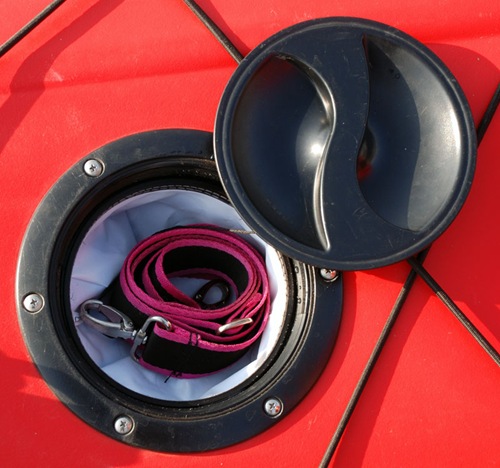
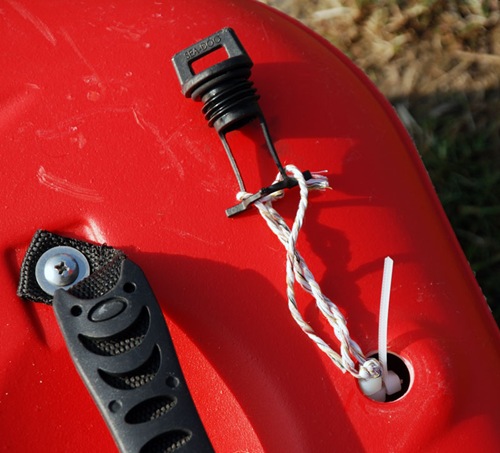
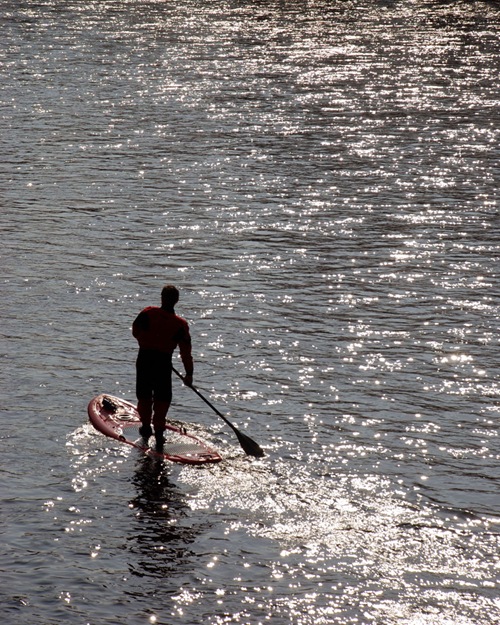

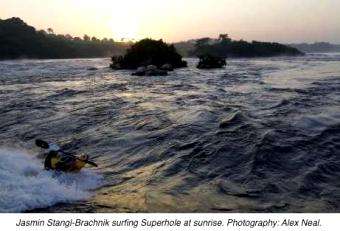





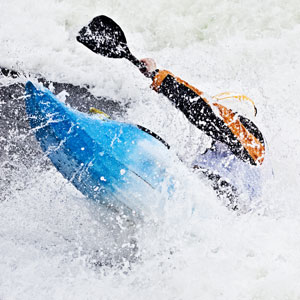 Get for free:
Get for free:








